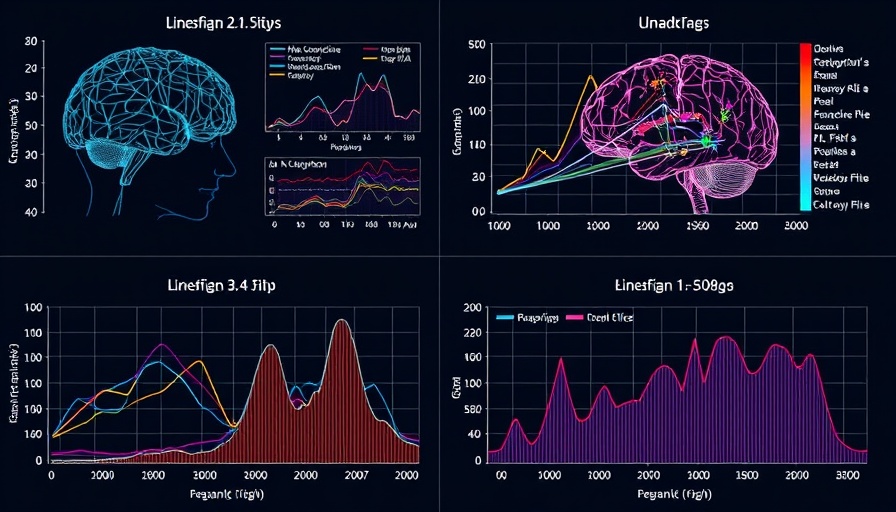
Understanding Lifespan Changes in Brain Connectivity
The human brain undergoes continuous transformation from the moment of birth to the twilight of life. Researchers at Beijing Normal University and allied institutes in China have embarked on a groundbreaking study published in Nature Neuroscience, revealing crucial findings on how the brain's functional connectivity—the coordination of various brain regions—changes throughout an individual's life. This large-scale analysis gathered data from 33,250 individuals, ranging from 32 weeks of gestation to 80 years, accumulating neuroimaging data from global projects like the Human Connectome Project.
The Peak of Brain Connectivity
The study emphasizes that the strength and variety of connections in the brain peak during early to mid-adulthood, suggesting a critical window for cognitive abilities and mental health. Understanding these patterns is not just academic; they provide vital insights into mental health disorders and cognitive decline often associated with aging.
Why This Research Matters for Health and Wellness
The findings from this research have profound implications for the fields of health and wellness. With the aging population in the spotlight, understanding how functional connectivity affects cognitive decline can inform preventive strategies and therapeutic interventions in community health. As more individuals strive for optimal health and wellness, insights from neuroscience can guide personal and community health approaches.
Linking Brain Connectivity to Mental Health
The findings also shed light on the increasing prevalence of mental health disorders globally. By identifying the stages of life where brain connectivity varies the most, clinicians can tailor interventions to align more effectively with patients’ cognitive development stages. For example, lifestyle medicine, which emphasizes healthy lifestyles, can leverage this information to foster better brain health for seniors and enhance community health initiatives.
A Glimpse into Future Trends
Looking ahead, this research catalyzes a trend where neuroscience intersects with health and wellness industries. As community health and wellness programs evolve to incorporate neuroscience insights, new treatments and personalized wellness solutions could emerge. This paves the way for innovations in naturopathic medicine, which often emphasizes holistic approaches to health. For instance, supporting brain health through nutrition, exercise, and mindfulness practices can significantly enhance cognitive function.
Potential Challenges and Considerations
While the research opens doors, it also presents challenges, particularly in translating scientific findings into practical applications in lifestyle medicine and community health settings. The gap between neuroscience research and implementation in alternative medicine practices must be bridged. Understanding how individual variances in brain connectivity can affect treatment efficacy is crucial in developing personalized programs.
Actionable Insights for Community Wellness
For individuals and health professionals in fields ranging from fitness and nutrition to mental health, the study underscores the importance of continuous education about brain health through every life stage. Community health and wellness events, such as workshops emphasizing brain health, offer platforms to disseminate these findings effectively.
Final Thoughts on Enhancing Brain and Community Health
As we integrate findings from neuroscience into health and wellness paradigms, there's immense potential to foster healthier communities. By emphasizing brain connectivity knowledge, individuals can make informed choices, contributing to a culture of health and wellness. Engaging with local and global wellness initiatives can empower individuals to take proactive steps in their health journey.
 Add Row
Add Row  Add
Add 




 Add Row
Add Row  Add
Add 


Write A Comment